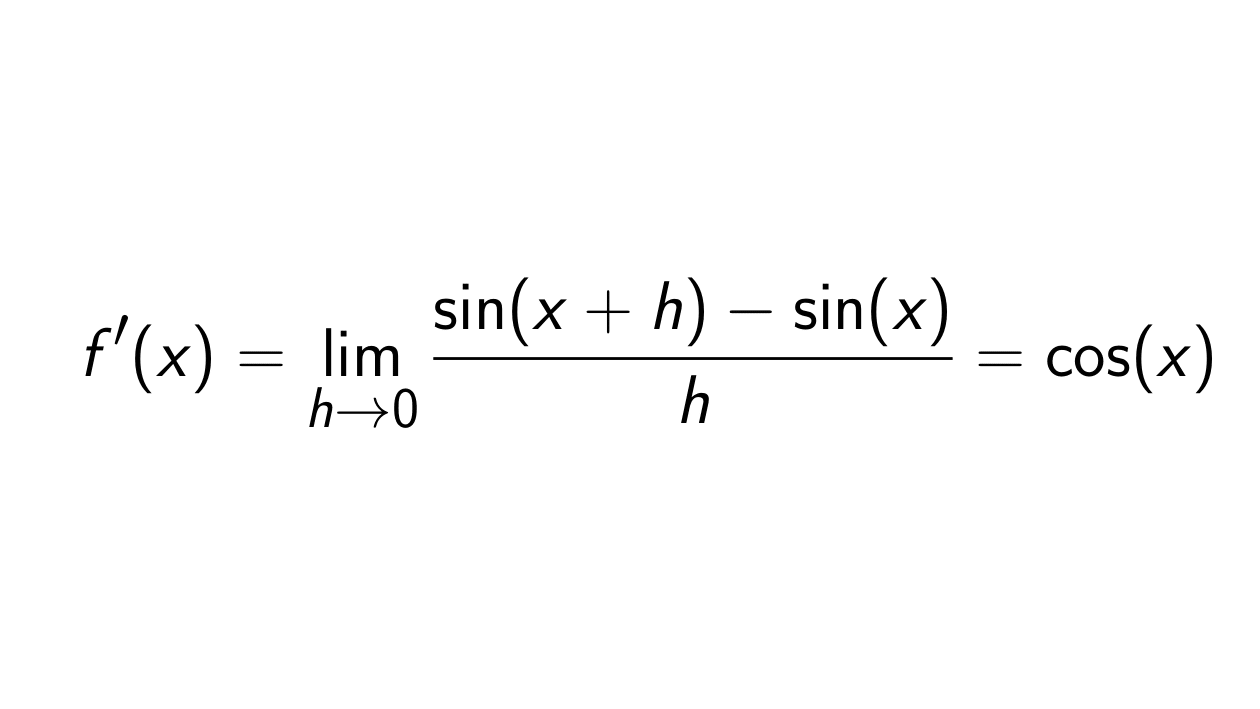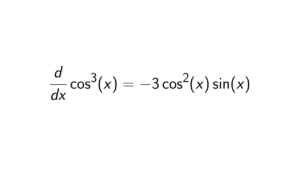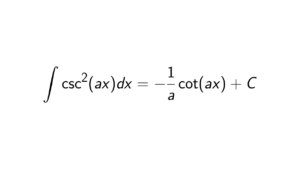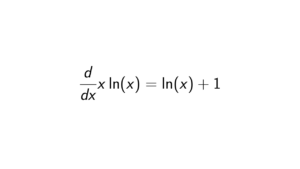Proof. Let f(x) = \sin(x). Then
\begin{align*}
f'(x) &= \lim_{h \rightarrow 0} \frac{f(x + h) - f(x)}{h} \\
&= \lim_{h \rightarrow 0} \frac{\sin(x + h) - \sin(x)}{h}
\end{align*}\begin{equation*}
\sin(x + y) = \sin(x)\cos(y) + \cos(x)\sin(y).
\end{equation*}\begin{align*}
&\lim_{h \rightarrow 0} \frac{\sin(x)\cos(h) + \cos(x)\sin(h) - \sin(x)}{h} = \\
&\lim_{h \rightarrow 0} \frac{\sin(x)(\cos(h) - 1) + \cos(x)\sin(h)}{h} = \\
&\lim_{h \rightarrow 0} \frac{\sin(x)(\cos(h) - 1)}{h} + \lim_{h \rightarrow 0} \frac{\cos(x)\sin(h)}{h} = \\
&\lim_{h \rightarrow 0} \sin(x) \lim_{h \rightarrow 0}\frac{(\cos(h) - 1)}{h} + \lim_{h \rightarrow 0} \cos(x) \lim_{h \rightarrow 0}\frac{\sin(h)}{h}
\end{align*}\begin{equation*}
\sin(x) \cdot 0 + \cos(x) \cdot 1 = \cos(x).
\end{equation*}\begin{equation*}
f'(x) = \cos(x)
\end{equation*}


